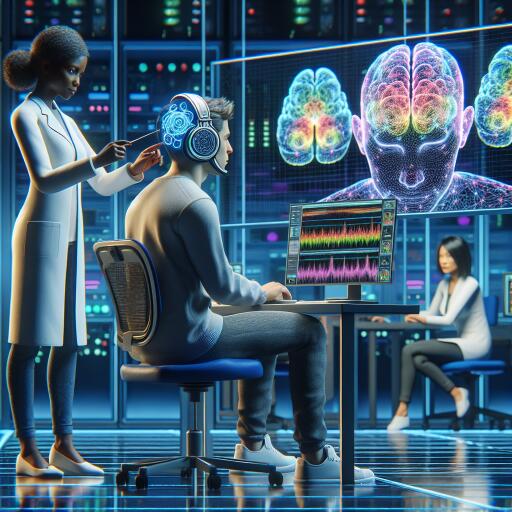Revolutionizing Communication: The Future of Brain-Computer Interfaces
The realm of brain-computer interfaces (BCIs) stands on the precipice of a major breakthrough, promising transformative benefits for individuals with motor or speech impairments. These innovative technologies offer the potential for controlling prosthetic limbs or navigating computer systems without the need for physical movement. Furthermore, both healthy individuals and those with impairments could potentially benefit from BCI-based gaming experiences, expanding the accessibility and enjoyment of digital entertainment.
However, the journey toward fully functional and reliable BCIs has encountered significant challenges. One of the major hurdles has been the inconsistent performance of non-invasive BCIs, which typically operate by interpreting the brain’s electrical activity, or brain waves, captured through electroencephalography (EEG). To address this issue, a groundbreaking study led by Bin He and his research team has introduced an innovative approach utilizing deep-learning decoders, heralding substantial improvements in BCI performance.
The study focused on enhancing the interface’s ability to accurately respond to a user’s intent during a task that involved maneuvering a cursor across a two-dimensional space. This was achieved by instructing participants to use their imagination in a specific manner: picturing the movement of their right hand to shift the cursor right, their left hand for movement to the left, both hands together to move upwards, and refraining from any imagined hand movement to descend, thereby enabling coherent and continuous control over a virtual object.
To evaluate the effectiveness of their approach, the research team engaged twenty-eight adult participants, who were tasked with this intricate cursor-movement exercise across seven BCI sessions. The performance of two distinct deep-learning architectures was compared alongside a traditional decoder to gauge improvements over time. The outcome of this rigorous testing was illuminating; both deep-learning decoders demonstrated marked progress throughout the study and notably surpassed the traditional decoder’s performance by the concluding session.
The significance of these findings cannot be overstated. For the first time, participants successfully controlled a rapidly moving cursor through a non-invasive, AI-powered BCI, relying exclusively on the brain’s sensor-space waves. This achievement not only tracks randomly moving objects with impressive accuracy but does so without the user needing to make any physical movements.
This pioneering study signifies a leap forward towards the development of neuro-assistive robotics, potentially revolutionizing the way individuals with physical impairments interact with the world around them. By harnessing the power of deep-learning decoders within BCIs, the future of non-invasive neurological assistance looks brighter than ever.
As we stand at the dawn of this new era in neurotechnology, it’s worth noting that the progress highlighted in this study represents just the beginning. The possibilities for enhancing and refining BCI technologies are vast, and ongoing research is paramount in realizing the full scope of their capabilities. The implications for healthcare, entertainment, and everyday convenience are immense, offering a glimpse into a future where thoughts alone can control our interaction with the digital world.
This overview draws on research findings and developments as presented by Bin He and his team. It’s important to acknowledge that this summary may condense complexities and nuances of the full study. Interested readers are encouraged to explore the detailed findings for a comprehensive understanding. Note that the viewpoints and interpretations provided here do not necessarily reflect those of the originating authors or their institutions but serve as an informed commentary on the advancements in BCI technology.










